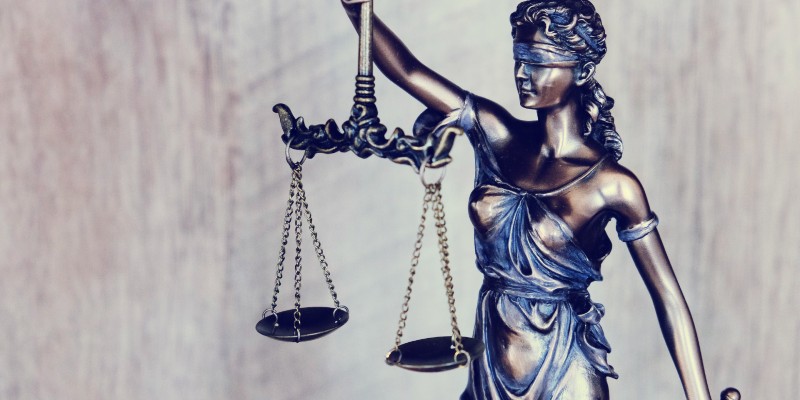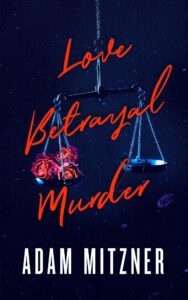I make mistakes in all my books. Once I described the USS Intrepid as a battleship. A reader who had served on her during World War II set me straight that she was an aircraft carrier. Another time I had a character gazing out onto the Atlantic from the shores of Sag Harbor. A local told me that Sag Harbor is on the Long Island Sound, a tidal estuary of the Atlantic. (And yes, I had to look up what that meant.)
There are others. A lot of others.
All of my errors, however, are inadvertent. I do not take any literary license in my writing.
Most of my books are legal thrillers, and I pride myself on getting the look and feel of the legal system exactly right. There are two main reasons for that. One is that I’m still a practicing lawyer, and I couldn’t bear it if my fellow members of the bar (or even worse, my clients) told me I was wrong about a legal issue. More importantly, I believe a realistic portrayal of the legal system is far more interesting than anything I could imagine.
Don’t get me wrong, there’s a place for license in fiction. It would be much less visually powerful if the lawyers on Law & Order held their courthouse press conferences in front of the actual criminal courthouse in New York City — which doesn’t have any steps — rather than while walking down the grand staircase that leads to the building that is actually the place that civil court cases are held. And the fact that no criminal defense lawyer worth his salt would ever permit his client to come within a million feet of a prosecutor should not deprive Jack McCoy the opportunity to deliver his plea offers directly to defendants on television.
But I think books should be held to a higher standard, which is why I’m determined to portray the criminal justice system as it truly is, with all its contradictions and ambiguities. I worry that taking license is akin to putting a single wrong ingredient in the most delicious stew; it’ll ruin the dish. Specifically, it’ll make the reader uncertain of what’s true and what I’ve devised for my own ends.
Sometimes that means I have to rewrite scenes that I love. I once wrote a chapter in which a character — who might have been guilty of the murder for which the protagonist stood accused — took the Fifth. It would have been a powerful moment — the defense attorney asking, “Did you commit the crime to which my client stands accused?” The witness would have waited a beat, and then said in a monotone, “On the advice of my counsel, I invoke the rights guaranteed to me under the Constitution not to incriminate myself.” The jury would have gasped.
The only problem was that my legal research revealed that judges in criminal cases do not allow witnesses to plead the Fifth in front of the jury.
I gave some thought to keeping it as written. I loved that chapter. But truth won out, and in the final version, the character invoked his constitutional right outside the presence of the jury.
All was not lost, however. I took the opportunity to turn lemons into lemonade and focus the chapter on the defendant’s frustration at the unfairness of the system.
I’m not a realism purist, however. From time to time, I employ loopholes to do things that are not strictly accurate. My most often used gambit is the bad judge. If there’s a piece of evidence I need the jury to hear that would be inadmissible in real life, I have the judge rule incorrectly.
The same goes with bad lawyers doing things that they shouldn’t and bad prosecutors making bonehead mistakes.
That’s not license, at least in my opinion. It reflects the reality that professionals screw-up.
These errors need to be realistic, however. I won’t have any of the characters do something that’s outside the realm of possibility for the character, even to advance the plot.
A legal thriller is not a documentary, of course. No one would consider the transcript of an actual trial a page turner. A balance therefore must be struck between getting it right and making it thrilling.
Giving readers the unvarnished truth tells them that the world they’ve just entered is grounded, and they can trust what they’re experiencing as much as the characters do. Just as I would never have Wall Street be a few minute walk from Central Park to get a character there faster and call it literary license, I wouldn’t allow the lawyers in my books to object to questions on the grounds of badgering the witness, or to demand the truth from witnesses because they think they’re entitled to it (sorry, Tom Cruise), or to stroll around the courtroom at their leisure, rather than be required to speak from behind a podium. They can’t even spring surprise witnesses on the other side, even though sometimes I wish the trial rules permitted that from a no-one-saw-that-twist-coming perspective.
One of my favorite things about reading is learning things so I can pretend to be smarter than I am. At any given time, I can be heard pontificating on the finer points of whaling thanks to Moby Dick, and consider myself akin to a chess grandmaster because I’ve read The Queen’s Gambit. Not to mention that I one-hundred percent believed I was capable of operating a nuclear submarine after reading a single Tom Clancy book.
I hope my books pay that forward to my readers. Even if you’re not capable of passing the bar or being nominated to the federal bench after reading my books, you can at least feel confident at a party saying, “You know, the prosecutor gets to do a rebuttal closing argument after the defense is finished,” without fear that you’ll be told that it doesn’t work that way in real life.
Of course, no rule is absolute. In one of my books, a character was arrested while wearing a tuxedo. At his arraignment the next morning, he was clad in his formal wear, his bowtie hanging untied around his collar, befitting a man who had once been at the pinnacle and was now laid low.
One of my beta readers, a very successful criminal defense lawyer, told me in no uncertain terms that would never happen. “His lawyer would have brought him a change of clothing,” he said. “Not to mention, the court officers would have taken away his tie for fear he’d strangle himself with it.”
I kept it in. I just loved the way the scene looked in my mind.
***


















